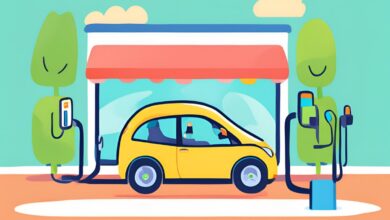Funding aims to improve electric vehicle battery supply chain

The Canadian government has reviewed and updated the critical minerals list following substantial consultations to focus our efforts in developing robust critical minerals value chains.
Jonathan Wilkinson, minister of energy and natural resources, also announced two investments of $5 million each to the Mining Innovation Rehabilitation and Applied Research Corp (MIRARCO) and Electra Battery Materials Corporation (Electra) to support the critical minerals sector in Canada, and in Northern Ontario specifically. These projects join nearly 130 mining projects under construction or planned over the next 10 years in Canada, representing a combined value of $93.5 billion, according to Natural Resources Canada’s Major Projects Inventory.
Funding to MIRARCO aims to advance technological readiness of the recovery of battery metals like nickel, cobalt and copper from mine tailings from the Vale and Glencore mines in the Greater Sudbury area, while reducing the long-term social and environmental costs associated with mine waste. Through this project, MIRARCO will directly feed into the battery supply chain, potentially unlocking significant amounts of nickel and cobalt in Sudbury, Ont.
Funding to Electra will be used to advance the next phase of its battery materials recycling project. Electra is constructing North America’s only battery grade cobalt refinery, five hours north of Toronto, as part of a multiphase effort to build the North American supply chain for battery materials. Electra successfully ran a demonstration recycling program on a batch basis at this facility in 2023. The funding advances the project, demonstrating the process on a continuous basis and showing that Electra’s proprietary technology is scalable, profitable and can be implemented at other locations. The battery materials recycling program will help conserve resources, reduce waste and reduce the environmental impact of battery production in North America’s critical minerals sector. Electra’s recycling program uses a new environmentally conscious process that will contribute to building a resilient Canadian electric vehicle battery supply chain.
“Today’s funding announcement is a clear signal from the Government of Canada of its ongoing commitment to creating a strong, sustainable EV supply chain,” said Trent Mell, CEO, Electra Battery Materials Corporation. “Our recycling project is part of the growth plan for our Ontario refinery complex, and we are thankful for this investment as it allows us to speed up the development of our proprietary critical minerals recycling technology. Electra’s battery recycling expertise can contribute to the production of clean, secure and ethically sourced materials for the EV supply chain in North America.”
To determine which minerals are considered critical, Canada released its first Critical Minerals List in March 2021 with a commitment to review the minerals identified as critical every three years. The list guides federal policy and programs and signals government areas of priority to stakeholders. Public consultations took place with provincial and territorial governments, other government departments, industry, Indigenous groups and other interested or affected stakeholders.
Critical minerals present a chance for Canada to drive economic growth, create jobs and support the fight against climate change. Mining and related industries employ more than 625,000 Canadians and contribute around $100 billion a year to Canada’s GDP, providing a strong supply chain and technical expertise we can leverage. As a global battery metals hub with the world’s largest integrated mining industrial complex and world’s second-largest nickel deposit, Northern Ontario is well positioned to become a key player as the shift to electric vehicles and other technology requiring nickel and other critical minerals grows.
An analysis was undertaken to review all minerals included in the 2021 Critical Minerals List and consider potential candidates for addition. These analyses resulted in an updated Critical Minerals List that retains all 31 minerals from the 2021 list and an additional three minerals, namely high-purity iron, phosphorous and silicon metal, for a total of 34 critical minerals. These materials are integral to a variety of products, critical to the energy transition are often those in short supply and they are those that are critical to our future economic prosperity.
For example, silicon metal is essential to the manufacture of chips and semiconductors, used in almost any and everything electronic. High-purity iron ore is essential to green steel and integral to decarbonization. Phosphorus combined with potash is essential for food security through the production of fertilizers. Phosphorus can also be used in lithium iron phosphate (LFP) batteries, another strategic opportunity in the EV value chain for Canada.



